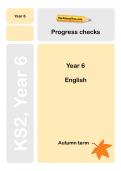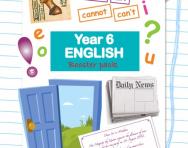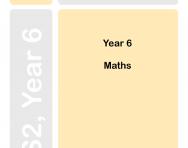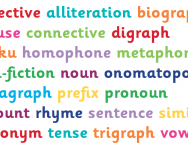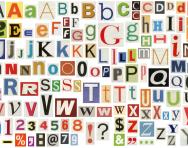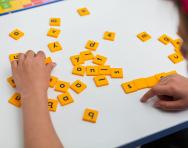Year 6 English Progress checks
You can use our Y6 English Progress checks, prepared by a KS2 teacher, to help you understand where your child might need extra support and practice with their English work in the last year of primary school.
The tests cover spelling, grammar, punctuation, handwriting and text-level work.
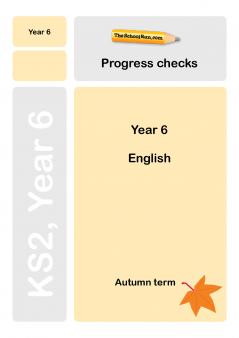


The Progress checks are designed to follow TheSchoolRun's Learning Journey for that particular term. Please note: they cannot and will not necessarily follow what your child’s teacher is doing at school this week / term, as teachers tend to choose to cover objectives in an order that they feel suits their class. Therefore, don’t worry if your child cannot complete certain questions; the point of the Progress checks is to help parents identify where children might need extra help and practice.
Y6 English objectives explained
By the end of the school year children should be confident with the following:
Year 6 reading
- Reading an increasingly wide range of fiction, poetry, play scripts and non-fiction texts
- Exploring a variety of texts, both modern and old and from other cultures and traditions
- Learning, reading, reciting and performing poems and plays, showing understanding through intonation and volume
- Inferring characters' feelings from their actions and justifying inferences with evidence
- Recognising figurative language and how authors use it
- Distinguishing between fact and opinion
Year 6 writing
- Using prefixes and suffixes when constructing and spelling words
- Spelling words with silent letters (such as 'knowledge')
- Spelling homophones
- Using a dictionary and a thesaurus
- Recognising synonyms and antonyms
- Writing with neat, legible and cursive handwriting
- Using the passive form of verbs in sentences
- Punctuating with semi-colons, colons, dashes and hyphens
- Learning to write using correct grammar and a varied vocabulary
- Describing settings, characters and atmosphere in narratives
- Structuring texts with organisational devices including connectives, paragraphs, headings and bullet points
For more information about what your child learns in Year 6 English read our parents' guide to literacy in the last year of primary school; you can also browse all our Y6 English worksheets or follow our Learning Journey for Y6 English or KS2 SATs English.
